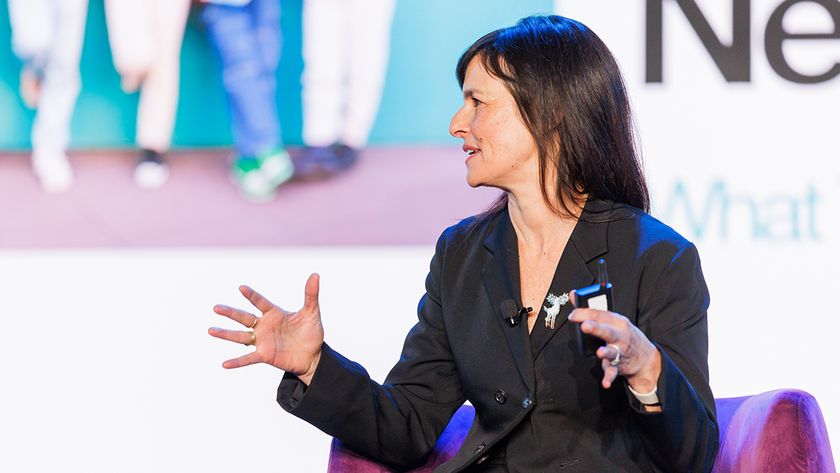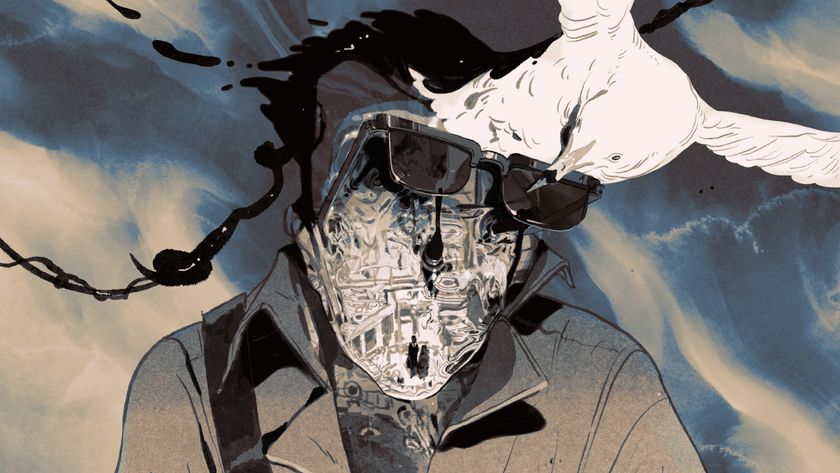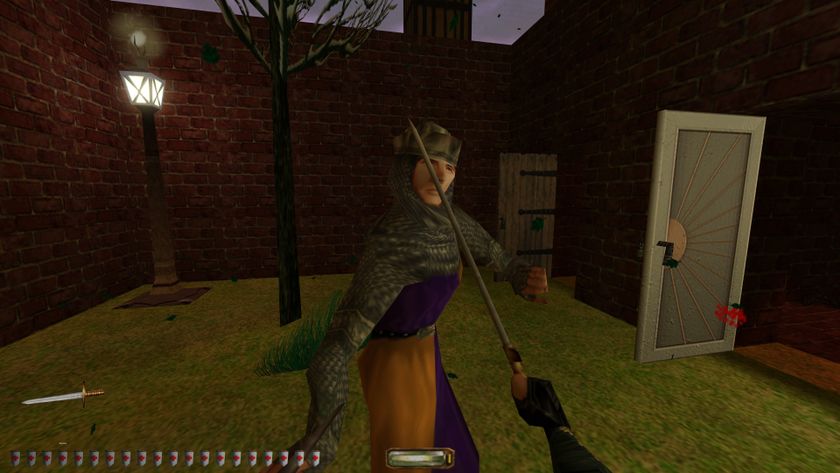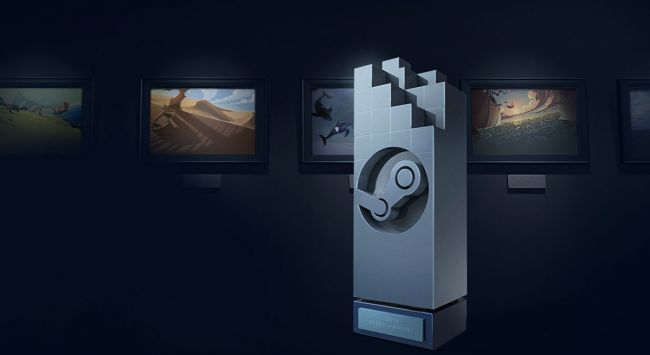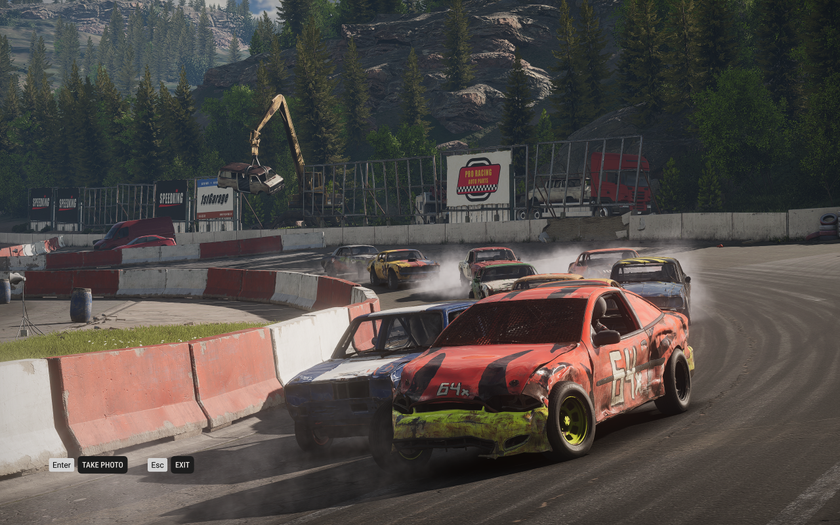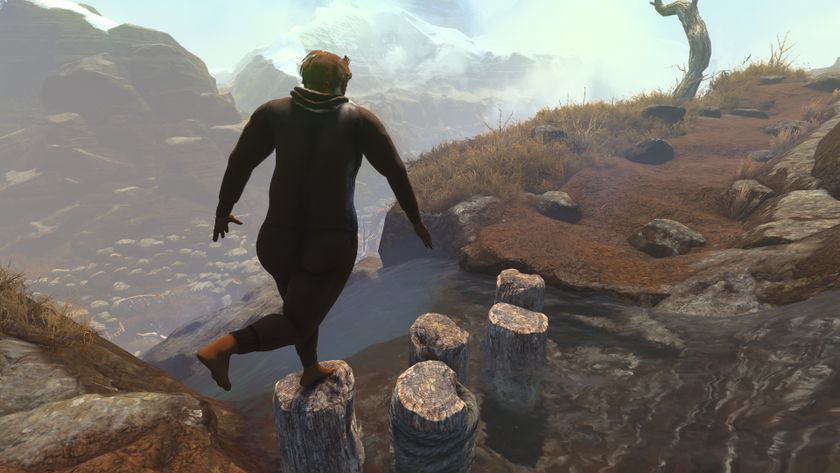
Image via reddit user pastaforeveryone.
Last week a bold and controversial new platform called EarlyNinja launched a Kickstarter campaign. Its promise is less risk for purchasers of Early Access games, more accountability from developers, and a lower chance of scams or incomplete projects abusing Early Access. How it'll work is creators of Early Access games will partner with the platform, all revenue from sales of their games on that platform are held by EarlyNinja, and then a percentage of the revenue (minus a 15% cut) is distributed to the developer as they meet predetermined milestone updates for their game. It's basically videogame insurance.
The following developers contributed to this piece:
- Garry Newman, Facepunch Studios
- Matt Donatelli, Graphite Lab
- Mark Morris, Introversion Software
- Dean Hall, RocketWerkz
- David Martinez, Raw Fury
- Swen Vincke, Larian Studios
- Chris Dwyer, itch.io and Finji
- Zeno Zokalj, Little Green Men Games
The reaction from game developers, however, was overwhelmingly negative. Devs we spoke with said EarlyNinja is essentially inserting itself as a pseudo-publisher, restricting both the creative process and vital funds for the developers that sign on. Since we first reported on EarlyNinja last Tuesday, it has only gained five new Kickstarter backers, and the amount raised in USD has actually gone down by about $200.
While the general consensus was that EarlyNinja went about "fixing" Early Access the wrong way, there was also an acknowledgement that the program does have problems that need fixing. Our own Evan Lahti argued late last year that Valve must take greater ownership of the Early Access program, and not much has been publicly done to change it since then. While I maintain that the value of Early Access successes like Kerbal Space Program and Prison Architect outweigh the failures and scams, it's human nature to remember and focus on those bad cases instead.
Using EarlyNinja as the jumping-off point, I reached out to some developers to see how they'd go about improving Early Access. Some of them have developed successful Early Access games themselves, and provide a unique perspective on a program that many feel has problems that need addressing. So I asked each of them the same question, how do we "fix" Early Access? Here's what they had to say:
Developer responses have been lightly edited for formatting, grammar, and typos, and some have been edited for length. Some excerpts were bolded for emphasis by PC Gamer, but italicized excerpts are the developers own emphasis.

"The only real problem with Early Access is one of people over-promising and under-delivering."
Garry Newman, Facepunch Studios:
It's hard to blame Early Access for anything that happens on it. That's like blaming the whole internet for something that is posted on Reddit.
The biggest gaming news, reviews and hardware deals
Keep up to date with the most important stories and the best deals, as picked by the PC Gamer team.
The only real problem with Early Access is one of people over-promising and under-delivering. That's not unique to Early Access, look at No Man's Sky for example. The industry has been built around selling games using bullshit for a long time—it's nice that people are being called out for it now.
Developers that fuck their users are only fucking themselves in the long run. Yeah they made a few hundred thousand dollars from a bunch of gullible, excitable people that didn't apply toddler logic to the optimistic promises listed on the store page, but in the long run they've tainted their company name, their reputation. The internet has got a long memory.
The industry has been built around selling games using bullshit for a long time—it's nice that people are being called out for it now.
Garry Newman, Facepunch Studios
With Rust, we took reputation so seriously that once we started to realise that we couldn't iterate fast enough we completely started from scratch. That got us a lot of negativity back then but we're pretty confident that we made the right decision now. If Early Access was locked down like some are asking for we might not have had the freedom to do that.
To be honest, I'm not totally against some of the things EarlyNinja was talking about. Having a roadmap and milestones aren't bad things, but they can't be hard coded and linked to payments. Plans are guesses, the developer still needs the opportunity to pivot if they think it's the wrong direction. It would just be nice if Steam had some of this stuff built in, so from a player's point of view they can see where the game's at, where it's going, developer track record—but in a generic way on every Early Access title.
Garry Newman is the Founder of Facepunch Studios, best known for Garry's Mod and Rust.

"Early Access is not a funding strategy."
Matt Donatelli, Graphite Lab:
I believe the responsibility to clean up the Early Access market lies with developers and not Valve. Too many developers are treating Early Access as a funding strategy and rushing their games to the platform. For an Early Access game to be successful, it must have a complete gameplay loop, contain dozens of hours of replayability, and have a clear roadmap for hitting full release. If a developer's game does not meet those criteria and they head to Early Access, there's no way their Early Access revenue will sustain their development team. Hive Jump met all these criteria and still didn't sell enough copies in Early Access to cover the cost of finishing the game. Developers should seek funding elsewhere, because Early Access is not a funding strategy.
Honestly, if there were systemic things Valve could do to clean up the Early Access market, they'd be doing them already. Let's debunk two common ideas. First, there's the notion that Valve should curate games that are coming to Early Access. They already do; it's called Steam Greenlight. Second, people suggest Valve should automatically remove games that don't update regularly. Unfortunately, this would be a very easy system to game, as a developer could easily push a minor update to fulfill the deadline, offering no value to players.
I believe Valve has given developers and players all the tools they need to curate the Early Access market. There is a solid review score display, and generous return system, and the ability to ignore Early Access titles entirely if you don't want to risk buying a dud. Players should be more discerning with their Early Access purchases, and developers should not publish their games to Early Access unless they fit the criteria for a good Early Access title.
Matt Donatelli is a game designer at Graphite Lab, developer of Hive Jump.

"The problem with Early Access is a problem of educating gamers about risk assessment..."
Mark Morris, Introversion Software:
So let’s go right back to the beginning: Game development is incredibly difficult and each project starts out with a huge amount of risk—technical (can we do this), creative (will it be fun and engaging), financial (can we afford to get to the end of the cycle), etc etc. Publishers learned how to manage this risk—they forced developers to create design documents alongside production schedules and milestones. This system did reduce the risk in the system, but a side effect was that it effectively destroyed the creativity in game production. Any idea that was a little edgy would be polished down, pushed to the back of the list, and eventually abandoned. We spent much of the early years of Introversion fighting against risk management and flying the flag for independent game development. In a big sense, this meant independence from the risk management tools employed by publishers.
Early Access is wonderful, egalitarian and is the future of indie game production.
Mark Morris, Introversion Software
If publishers were such a problem, why did they grow so big and come to dominate the industry at the turn of the century? Simple answer: money. Developers need to be paid, just like everyone else on the planet. Publishers were like very specialised banks who would gamble on game projects and give the developers the cold hard cash they needed to follow their dream of making games. This started to change with the indie revolution, because the technology had evolved to the point where small teams could make games in their bedrooms, moonlighting from a main job and get something amazing out. Spin the clock forward and we get some philanthropy like the indie fund pouring some money into development, but this was only one fund and getting paid to make games was still a massive blocker for a new team.
Early Access was the first time that a genuine solution was proposed to the problem of funding indie game design. It was a scalable system where the risk to the backers is small, because no single backer gives more than they can afford, but on aggregate enough money flows through to support major projects like Kerbal or Prison Architect. Early Access is wonderful, egalitarian and is the future of indie game production.
So in effect, Early Access replaced publishers with gamers. Publishers did two things: assessed and managed risk and provided funding. Early Access backers provided funding, but in many cases did not accurately assess the risk and in some cases were clearly not happy with the risk they had accepted. Imagine you have $100 to invest: do you put it in a bank account, 100% secure with an interest rate of 0.5%, or do you invest it in the stock market, where you'll either double your money in a day or lose the whole lot. When deciding on an investment it is always necessary to compare the risk with the reward. This analogy holds for Early Access, when deciding to back a game, supporters should begin by asking themselves "am I happy to give this developer this amount, given that this whole project could come to nothing?"
With regulation comes a reduction of freedom, and it’s that creative freedom that has delivered such an incredibly vibrant indie scene. Let's not break that.
Mark Morris, Introversion Software
The problem with Early Access is a problem of educating gamers about risk assessment and how to apply it to a particular project. Have these devs made anything in the past? How big is the team? What is the burn rate of the company versus the amount they are asking for, will they have enough time to finish this project? Do they seem to understand the technical requirements for their vision? How much does the team need to make in order for this to be commercially viable to continue?
Now risk assessment is slightly different than risk management. Risk management (done badly) kills creativity, but risk assessment just insures that everybody has a good understanding of what they are getting involved with. Just because a project is very high risk doesn’t mean that it’s not worthy of backing, simply that there is a greater chance of failure compared with a lower risk (and therefore probably more boring) idea.
EarlyNinja looks like a risk management platform and, from my experience, it will fail. It will necessarily degrade creativity and will ultimately fail to build confidence in Early Access. In my opinion, I don’t want to see any regulation of Early Access—there will always be thieves and shysters who try to defraud the system, but at the start of the project these are pretty much indistinguishable from a brand new game dev who wants to take a punt on his first project. With regulation comes a reduction of freedom, and it’s that creative freedom that has delivered such an incredibly vibrant indie scene. Let's not break that.
Mark Morris is the managing director and co-founder of Introversion Software, best known for Prison Architect.

"The community has to pick up the role publishers took in critically reviewing the achievability of Early Access projects..."
Dean Hall, RocketWerkz:
The most common complaint I see is that Early Access needs to be "policed" to prevent failures and ensure scope gets delivered, and this is the crux of the EarlyNinja idea. Traditionally publishers acted as the "police" for developers, assigning money to teams who had a vision they trusted and portioning the risk through distributed milestone payments. The beauty of Early Access is that it puts the developers in a direct relationship with the customers, removing this "milestone ransom", and subjects the concept to a baptism by fire.
Much like with preorders, Early Access consumers struggle to critically examine new projects and announcements. I think the gaming media and gaming influencers bear the biggest responsibility here. An example would be when The War Z came out. We (on the DayZ team) couldn't believe that they had managed to solve all the issues that we were knee deep in, yet the game was given multiple positive previews. I would say the same applies to games like No Man's Sky, as they say, extraordinary claims require extraordinary evidence. The traditional approach for games was to review the game when complete and/or released—but how does this work when the consumer is paying before then through preorders and Early Access? How often do games get previewed well, only to receive poor reviews? How often do Early Access reviews and Let's Plays critically examine how hard the provided roadmap is, and the amount of resources the team has?
While I would admit I have several Early Access disappointments in my library, I'm more than happy to have suffered those in return for gems like RimWorld and Kerbal.
Dean Hall, RocketWerkz
There is a feedback loop in Early Access, and I'd argue in preorders as well, where there are tangible benefits to a developer selling the possibilities of the project rather than an achievable vision. This is the step that traditional publishers either became good at or bankrupt from. With No Man's Sky, what was delivered was largely what I had expected, and taken as such was very impressive. But for many, the possibilities offered did not meet the realistic vision and that created disappointment. For those projects that seek to minimize their scope in Early Access they can suffer from not being ambitious enough. Therefore we end up in a cycle of hype, release, disappointment. The community (media, consumers, and influencers) has to pick up the role publishers took in critically reviewing the achievability of Early Access projects, or we keep rewarding projects that make bold claims.
The biggest positive for Early Access is that it allows a project's scope to change very dramatically based on what resonates with the consumer. The best example of this would be Kerbal Space Program. The game that it began as changed very dramatically based on its success and what its potential was. If the game had been developed under a traditional publishing scenario, it would have been made to specification and thus a much smaller game. Exposing your project to a paying consumer early is both sobering and wonderful. If there was ever a method to enforce adherence to predefined milestones then this would be completely lost.
While I would admit I have several Early Access disappointments in my library, I'm more than happy to have suffered those in return for gems like RimWorld and Kerbal. I can't say the same for preorders. If customers would stop preordering games it would go a long way to derailing the focus on the "hype train" that publishers go for.
Dean Hall is the founder of RocketWerkz, is best known for the DayZ mod for Arma 2, and is currently working on the game Ion and other unannounced projects.

"Help raise awareness among the community about vetting a title and dev team before buying into it."
David Martinez, Raw Fury:
This EarlyNinja thing has been quite the conversation starter. I'm visiting Stockholm at the moment and the Kickstarter launch started at a time we were all sitting down to a company dinner; it dominated a good part of the evening's conversation.
Early Access is a great tool for burgeoning developers to fund their titles and Steam's inclusivity makes it easier than before to give them access to the platform, but that same spirit of inclusivity might lead to consumers getting burned if a dev team takes advantage of them.
If Valve had a disclaimer that popped up before someone purchases an Early Access title—something that basically asserts buying an Early Access title does not guarantee a game will be finished and to research before buying—this would help raise awareness among the community about vetting a title and dev team before buying into it. Steam has already taken steps in the right direction toward peer review by offering user reviews on the site, taking the extra step of highlighting this before purchase could help consumers make better informed decisions about where to spend their hard earned money. This isn't a catch all solution, but it would help people further avoid projects that might not deliver.
David Martinez is the chief amplification officer at Raw Fury, the publisher behind Kingdom: New Lands and Gonner.

"I’d probably suggest making it crystal clear to buyers what they are getting into…"
Swen Vincke, Larian Studios:
Regarding Early Access, I’m not really sure there’s a problem here. I think it's clear by now to most people what the platform is and what it does, and for developers that use it responsibly it’s a great tool. If anything, I’d probably suggest making it crystal clear to buyers what they are getting into, perhaps letting them push an “I agree” button on a message that makes them aware of the risk, something like “This is an Early Access game. You are helping the developer tremendously with this but it’s important you understand there is no guarantee the game will ever be finished or indeed even will be updated from the time of your purchase. The completion rate for developers in Early Access is X% and for this developer is Y%. Do you agree?”
Swen Vincke is the CEO of Larian Studios, best known for Divinity: Original Sin and currently working on its sequel.
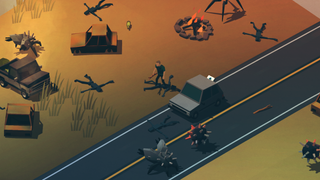
"Fixing Early Access is a job that's split between platforms and developers..."
Chris Dwyer, itch.io and Finji:
I guess I'll just preface my answer that while I do work for itch.io, I also do work for Finji and other developers doing marketing, PR, and production, so I'm going to try to give an answer that kinda covers all of those perspectives.
I think fixing Early Access is a job that's split between platforms and developers by making sure Early Access programs are 1) equipped for success, and 2) conducted by the right games for the right reasons.
If you're relying on Early Access for significant production funding or looking to release a story-based game episodically, Early Access generally isn't the right place for that.
Chris Dwyer, itch.io and Finji
For platforms, I think Steam's inflexibility with custom business models and the forced nature of promoting Early Access titles as final SKU's on their storefront next to finished titles goes against the idea of providing developers safe ground to sell their game while in-development (while also sending conflicting messages to considering developers and consumers). itch.io refinery, itch.io's toolset that allows customized Early Access programs directly controlled by developers, mitigates any of that risk and also allows for better programs in general because of the entire control they retain over features such as pricing, limited keys, private forums and reward tiers. To be honest, it solves a lot of the platform problems of Steam Early Access.
On the content side, developers need to be mindful of the appropriateness of their game for an Early Access program and recognize their motivations for having one. Every game is different and can benefit from specific things while in-development, whether it's finding bugs, stress testing or tweaking critical systems, and Early Access to games can facilitate all of that. On the flip-side, if you're relying on Early Access for significant production funding or looking to release a story-based game episodically, Early Access generally isn't the right place for that. So developers making sure Early Access is right for their game, or not doing it all if not, could probably help the landscape.
Chris Dwyer works for both itch.io and developer Finji, currently developing Overland.

"Early Access is a gun. It's not inherently good or bad, it's just a gun."
Zeno Zokalj, Little Green Men Games:
It is a complex question, but I'll try to answer it.
First problem are reviews. They are either Positive or Negative, nothing like 'Promising' or 'Neutral'. Those reviews stay there even after full release and although they are clearly outdated, they can still bury a game on release day. Negative reviews during Early Access are mostly "this is bugged," "lacks features," or "it seems unfinished." But disabling reviews during Early Access would also be a problem because we need that feedback. Maybe disabling them on release day? A clean slate after hard work. All those people can then update their reviews on release and outdated ones are not visible and don't count toward the general score.
Early Access can be used or abused, it's really up to developers. Unfortunately it's more often abused in the last two years and players got fed up with it and lost faith in Early Access. We can just hope more teams will realize what Early Access is really about and get back on track because everybody benefits from it, both players who can directly steer the game development and devs who get many good ideas from their community.
As our Lead Scripter and Starpoint Gemini Warlords storywriter Danijel said: "Early Access is a gun. It's not inherently good or bad, it's just a gun. You can use it for protection and cracking walnuts, or you can use it for a terrible, malicious, premeditated murder. It's up to you."
Zeno Zokalj is the community manager at Little Green Men Games, developer of the Starpoint Gemini series and currently working on Starpoint Gemini Warlords.
Developer responses have been lightly edited for formatting, grammar, and typos, and some have been edited for length. Some excerpts were bolded for emphasis by PC Gamer, but italicized excerpts are the developers own emphasis.


